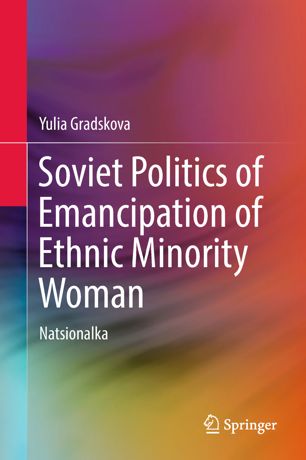

Most ebook files are in PDF format, so you can easily read them using various software such as Foxit Reader or directly on the Google Chrome browser.
Some ebook files are released by publishers in other formats such as .awz, .mobi, .epub, .fb2, etc. You may need to install specific software to read these formats on mobile/PC, such as Calibre.
Please read the tutorial at this link: https://ebookbell.com/faq
We offer FREE conversion to the popular formats you request; however, this may take some time. Therefore, right after payment, please email us, and we will try to provide the service as quickly as possible.
For some exceptional file formats or broken links (if any), please refrain from opening any disputes. Instead, email us first, and we will try to assist within a maximum of 6 hours.
EbookBell Team

4.3
18 reviewsThis book provides a new perspective through a closer look on “Other”, i.e. ethnic minority women defined by the Soviet documents as natsionalka. Applying decolonial theory and critical race and whiteness studies, the book analyzes archive documents, early Soviet films and mass publications in order to explore how the “emancipation” and “culturalization” of women of “culturally backward nations” was practiced and presented for the mass Soviet audience. Whilst the special focus of the book lies in the region between the Volga and the Urals (and Muslim women of the Central Eurasia), the Soviet emancipation practices are presented in the broader context of gendered politics of modernization in the beginning of the 20th century. The analysis of the Soviet documents of the 1920s-1930s not only subverts the Soviet story on “generous help” with emancipation of natsionalka through uncovering its imperial/colonial aspects, but also makes an important contribution to the studies of imperial domination and colonial politics. This book is addressed to all interested in Russian and Eurasian studies and in decolonial approach to gender history.